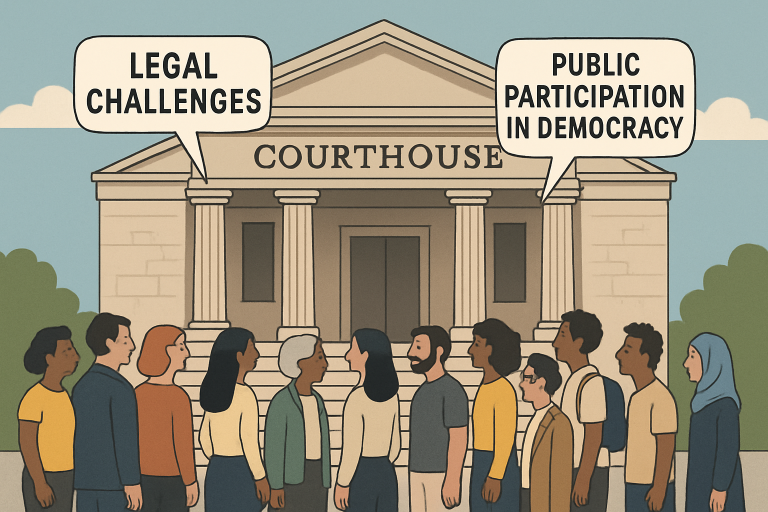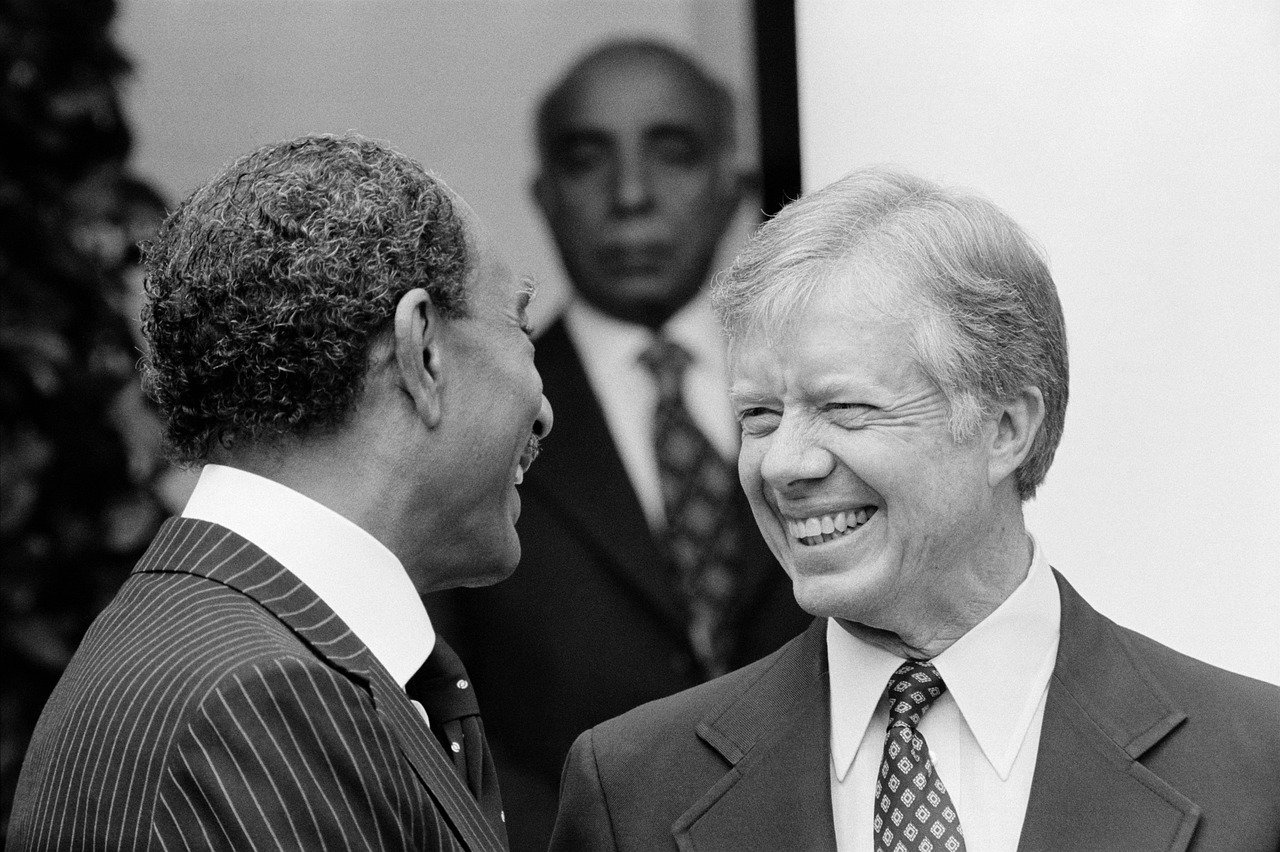Key Takeaways
- Lawsuits can have extensive effects on policies and the everyday lives of citizens.
- Civic participation often increases when communities see their rights at stake in high-profile legal cases.
- Legal actions frequently highlight the evolving relationship between federal and state powers.
- Access to the courts can help safeguard fundamental rights and promote equity and justice.
- Recent events have heightened awareness around the use of litigation as a tool for social change.
The Role of Lawsuits in Shaping Democracy
Legal challenges are essential drivers of change in the American democratic system. Throughout history, pivotal lawsuits have redefined the boundaries of rights, set legal precedents, and influenced generations of policy decisions. High-profile cases such as Brown v. Board of Education and recent decisions on voting rights demonstrate the profound impact litigation can have on public life. The Legal Defense Fund’s Trump lawsuit tracker is a valuable resource for staying updated on ongoing litigation that could significantly reshape democratic processes. By tracking how these cases unfold, citizens remain informed and able to hold their elected officials accountable for respecting legal and constitutional boundaries.
Lawsuits also act as mechanisms for civic participation, engaging communities when their rights or liberties are perceived to be under threat. When courts are asked to rule on matters ranging from immigration to civil rights, they offer a venue for individuals and groups to challenge government overreach and ensure their voices are heard. This process upholds the system of checks and balances fundamental to American governance, while also fostering an engaged and responsive citizenry.
Civic Participation and Public Attention
Interest in legal challenges often surges when cases gain widespread media coverage. This phenomenon is evident during moments such as Supreme Court hearings or high-visibility state-level lawsuits. The increased attention serves to educate the public and fuels debate both on the airwaves and in local communities. During periods of intense legal scrutiny, people are more likely to attend rallies, discuss issues at educational forums, and organize grassroots advocacy efforts. The power of courtroom decisions extends beyond legal professionals; it resonates through families, schools, and civic organizations, underscoring that democracy thrives when citizens are well-informed and actively engaged.
For example, recent Supreme Court deliberations on election laws and ballot access have led to widespread civic action and inspired voter rights workshops across diverse communities. Major news outlets, such as The New York Times, have reported extensively on these cases, helping to translate judicial proceedings into accessible information that can guide direct community action and awareness.
Legal Precedents Affecting Everyday Life
What unfolds in a courtroom often sets the stage for daily routines and long-term societal trends. Legal precedents have a ripple effect, dictating everything from public health measures to workplace equality. For instance, court decisions on environmental protections shape how industries operate, and rulings on education funding can determine the quality of resources available in public schools. By establishing or overturning key precedents, lawsuits redefine the expectations citizens hold for government services and legal protections. Comprehensive coverage from large publications like The Washington Post helps readers track how these high-impact court decisions are implemented in practice, making the sometimes complex world of litigation more approachable and actionable for the general public.

Legal Challenges as a Social Safety Net
For many disadvantaged or marginalized groups, access to the courts is a vital means of protecting and safeguarding their fundamental rights. Historically, legal advocacy has paved the way for significant advances in civil rights, anti-discrimination reforms, and equitable access to the justice system. Organizations that focus on strategic litigation often prioritize cases that address systemic inequities and help establish broader legal protections for all Americans. Research from the Brennan Center for Justice highlights how lawsuits serve as a social safety net, reinforcing due process and ensuring that justice is not reserved solely for those with power or privilege.
The Balance Between Federal and State Powers
Conflicts between federal mandates and state-level autonomy are frequently adjudicated in the courts, with outcomes that can significantly reshape how laws are enforced across the country. As legal disputes move through the system, they reveal the ongoing negotiation between centralized governance and local independence. Landmark cases frequently set new standards, either reinforcing federal supremacy or granting states additional authority over crucial matters, such as healthcare, education, or election procedures. These court-driven developments allow American democracy to remain flexible, evolving in response to shifting societal norms and regional concerns.
Litigation, Media, and Misinformation
Media coverage plays a powerful role in shaping public perceptions of legal challenges, but it also brings risks. While responsible journalism can demystify legal proceedings and highlight their real-world impact, oversimplified or sensational coverage can fuel misinformation. In an age of viral headlines, readers are encouraged to seek out reliable, in-depth reporting from established sources, cross-reference stories, and remain skeptical of unverified claims circulating on social media. Careful consumption of news helps maintain a well-informed electorate equipped to engage constructively in civic dialogue and action.
Engaged Communities Making a Difference
Grassroots responses to litigation have tangible effects on policies and community awareness. Across the country, local leaders and nonprofits frequently organize educational forums to provide residents with essential information about their rights, particularly following major court decisions. For example, in cities affected by controversial legal decisions on voting or criminal justice, community organizers have set up workshops and distributed guides on how to interact with poll workers or law enforcement. These localized actions reinforce the idea that informed participation, stemming directly from awareness of legal processes and outcomes, can lead to substantial changes at both the local and national levels.
Looking Ahead: The Evolving Power of Legal Challenges
As America faces new political, technological, and social challenges, the courts are poised to remain at the forefront of national debates. Legal challenges will continue to test and redefine the boundaries of democratic rights and obligations. With vigilant citizens, transparent reporting, and active engagement from civil society, litigation will serve as a dynamic tool in the ongoing effort to protect and strengthen democracy—ensuring its relevance and fairness for generations to come.
YOU MAY ALSO LIKE: Kennedy Funding Ripoff Report: Lender Disputes Explained

